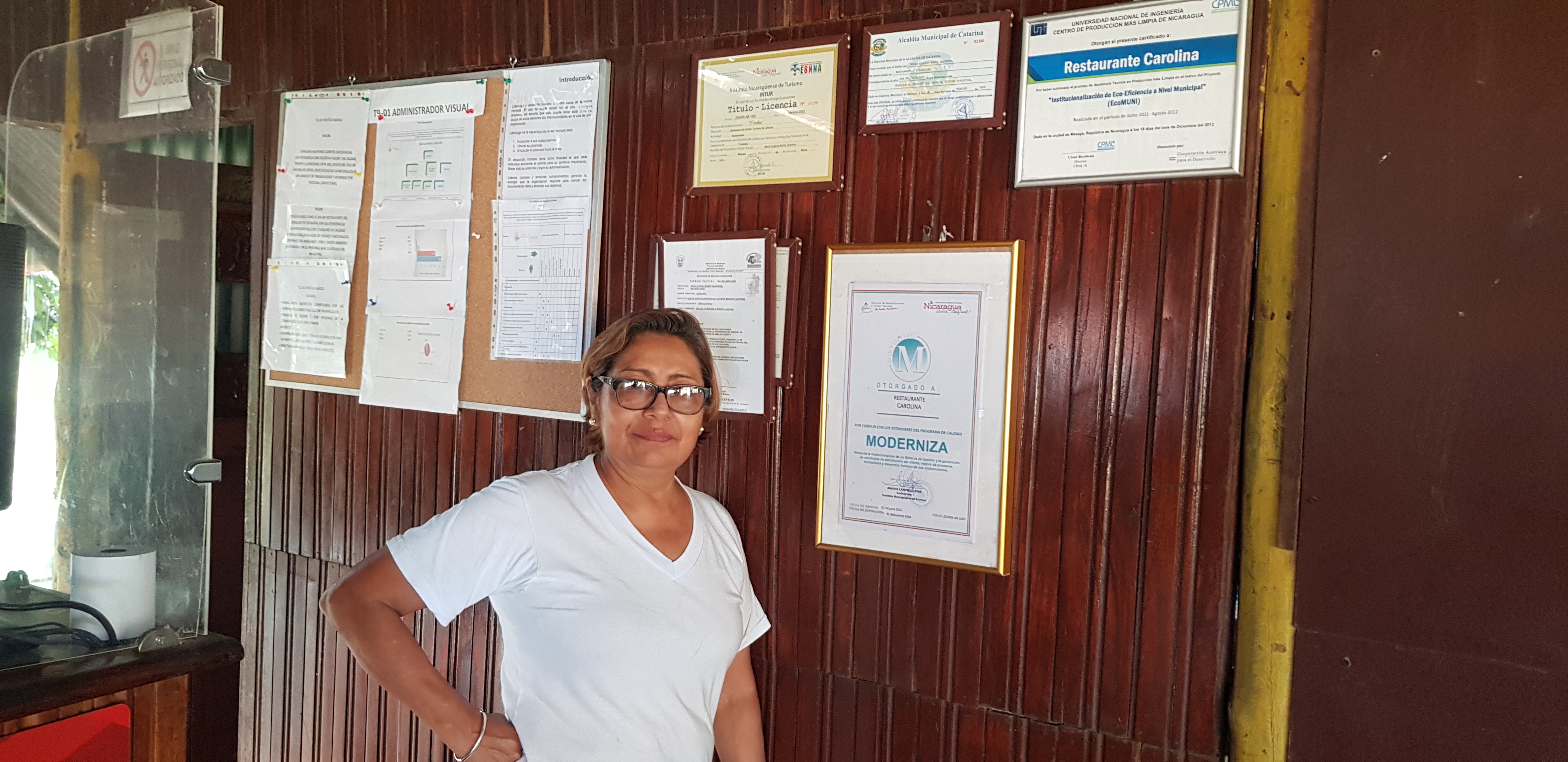
Catarina, Masaya, Nicaragua: Maria Eugenia Muñoz Restaurant
Maria Eugenia Muñoz runs Restaurante Carolina in Catarina, Nicaragua, a family business at the heart of their daily life and income. Facing high electricity costs, she partnered with GRID Alternatives to install a solar system tailored to the restaurant. The project reduced energy bills and strengthened the family’s ability to grow the business, reinvest in staff, and set an example of community-driven sustainability. Read more.
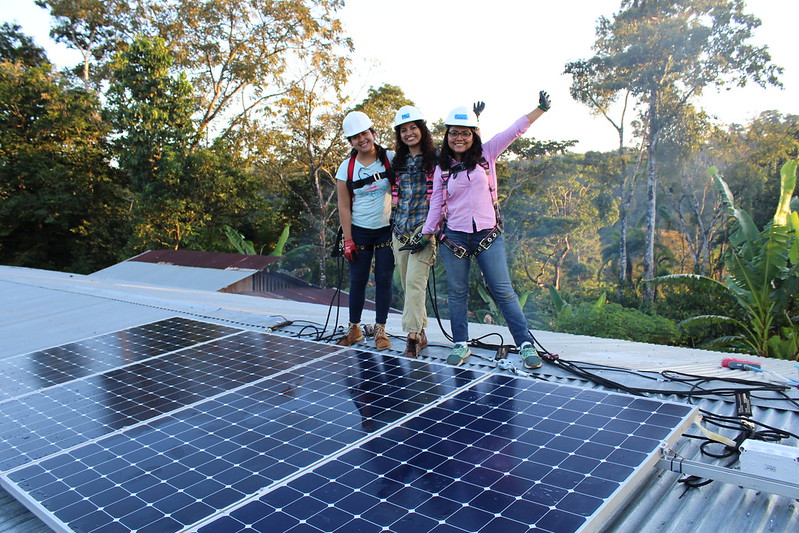
Making El Paraíso Shine: Bringing Solar to a Remote Community in Nicaragua
In 2020, GRID Alternatives and an all-women cohort of local trainees from Nicaragua installed a solar system on a community school in the remote community of El Paraíso in Nicaragua. Read more about the particular challenges of the project, how solar has helped the community flourish, and how you can help us continue to support the wonderful community of El Paraíso. Read more
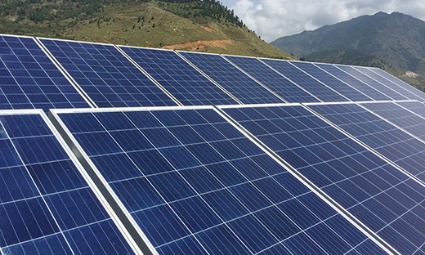
Solar Enables COVID-19 Vaccine Distribution at Pandu Gupha Health Post in Jumla, Nepal
Despite the challenges of COVID-19, in September 2020 GRID and partner Gham Power installed a 5.9kW off-grid solar system at the Pandu Gupha Health Post and Birthing Center located in Nepal which has allowed the clinic to distribute the COVID-19 vaccine to surrounding communities. Read more.
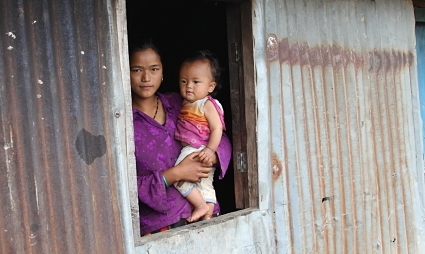
A Microgrid in Dhapsung, Nepal Improves Quality of Life
With the installation of a 15.75kW ground-mounted solar microgrid in the village of Dhapsung, Nepal, community members regained access to electricity after the earthquake destroyed their community's hydroelectric plant. The microgird provides reliable electricity to 42 households in the village, the elementary school, small businesses and street lighting. Positive outcomes were seen in the community in the areas of health and safety, education, economic development and quality of life. Read more.
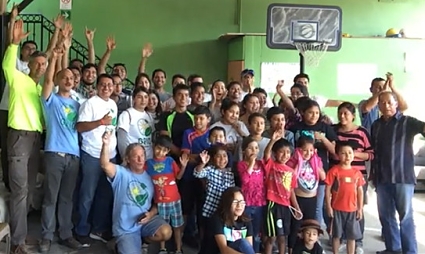
Solar-powered Savings at Casa Hogar Ebenezer Orphanage, Tijuana, Mexico
With the installation of a 10kW solar system at Casa Hogar Ebenezer in 2017, the home has been saving hundreds of dollars on their electricity bills every month, with impacts that include the construction of additional dormitories and facilities for the children and staff who live at the home, availability of funds for emergencies and higher quality clothing and food for residents, and confidence building for the older children from the home who participated in the installation and have been in charge of maintaining the system itself. Read more.
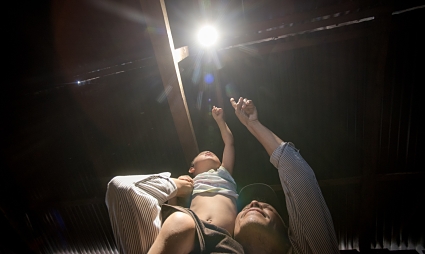
Solar Home Systems: El Platanal, Nicaragua
El Platanal is a remote community in Nicaragua that is home to 246 people. GRID Alternatives worked with El Platanal in 2013 to install solar on the local school, and again in 2015 to install solar home systems to further transform the community with access to electricity. Impacts from access to solar energy include new educational possibilities, the ability to use electricity for lighting and activities at home, improved health and savings for families by eliminating dependence on kerosene, and increased opportunities for local entrepreneurs. Read more.
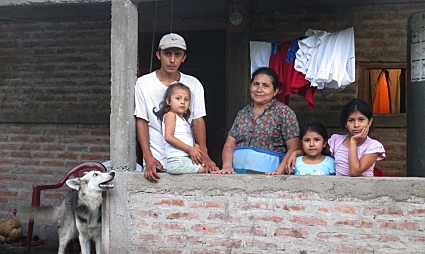
Solar-Powered Drip Irrigation: Jucuapa, Nicaragua
Nelson and Johana Valle are farmers in the community of Jucuapa in Matagalpa, Nicaragua. They support their young daughter, Ixil, and Nelson's mother, Marina. In the midst of a multi-year drought, they struggled to earn a profit. GRID designed and installed a 370W DC-direct solar-powered drip irrigation system as a solution. Impacts from the system include higher earnings, more diverse crops, less time collecting drinking water, more reliable electricity for home appliances, no more trips to buy diesel fuel, more income for neighbors, and more locally grown food available all year round. Read more.
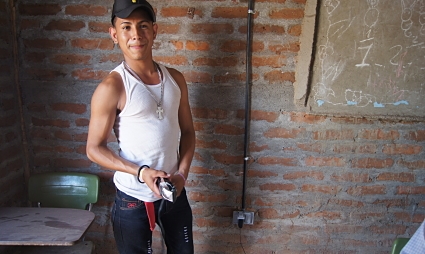
Solar-Powered School & Health Clinic: El Guaylo, Nicaragua
El Guaylo is a rural community of 261 people located in Estelí, Nicaragua. The region is known for its mild climate and forested mountains. Its largest city was heavily affected by the civil war in the 1980s. The electric grid does not reach many rural areas in Estelí, including El Guaylo. Most homes rely on kerosene lamps or flashlights with batteries that must be replaced every two weeks. GRID worked with El Guaylo to install a 920W PV system on the school and a 490W system on the health clinic. Impacts include access to technology, entrepreneurship opportunities, better medical care, and savings of time and money. Read more.
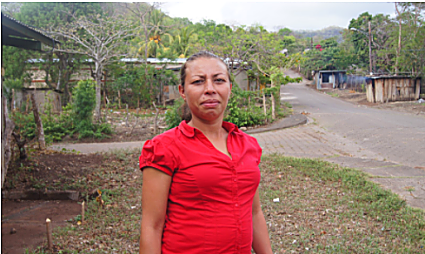
Solar Lighting Program : Solar Entrepreneur Lorena Torres
Martha Lorena Torres Espinoza lives in the rural community of Agua Fria, Nicaragua. In 2012, she began selling solar lamps in her community through GRID Alternatives' Solar Lighting Program. GRID launched the Solar Lighting Program to provide high-quality affordable solar lighting solutions to families living off the grid in Nicaragua, while supporting micro-enterprise for women. A total of 13 women in 13 different communities have sold more than 610 lamps to date. As a Solar Saleswoman, Lorena has created an additional income source for her family while displacing kerosene and making clean lighting sources accessible to her neighbors. Read more.
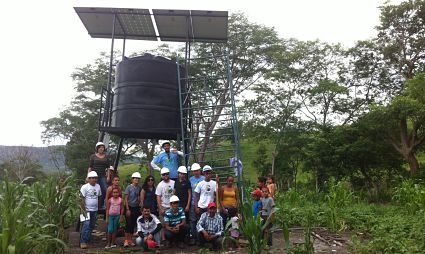
Solar-Powered Drip Irrigation: The Cruz Family Farm
Boanerges and Luisa Cruz are small farmers in the community of La Rinconada, Jinotega, Nicaragua and parents to four children. In July 2016, GRID Alternatives installed a DC-direct 880 watt solar drip irrigation system on their farm together with Nicaraguan solar company Suni Solar, international and local volunteers, and members of the Cruz family. Previously, the Cruz family only cultivated a third of their productive land due to the high cost of irrigation. Now, they are able to farm the entire 2.1 manzanas of land and as Boanerges says: "there is not a single place on the farm that is not being used, even in the internal roads we are trying to cultivate." Read more.
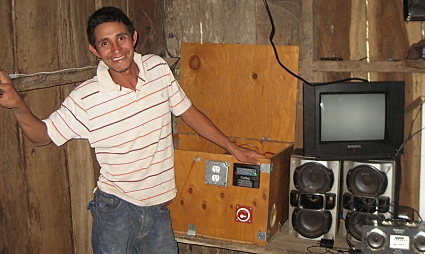
"Sun-Powered Independence": Jose Ariel in Platanal, Nicaragua
José Ariel, known as “Arielito” to his community, is 29 years old and lives in Platanal, Boaco, Nicaragua. Having an off-grid solar system on his house in the rural community has allowed Jose Ariel to maintain his independence and dignity, despite the challenges he faces living with a disability. By continuing to live in his own house and raise animals, he has a purpose and a comfortable routine. Before Ariel had electricity in his home, he had to walk for four hours, every other week, to buy kerosene fuel to burn in his two kerosene lamps at home. Read more.
